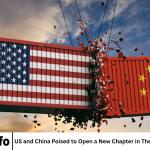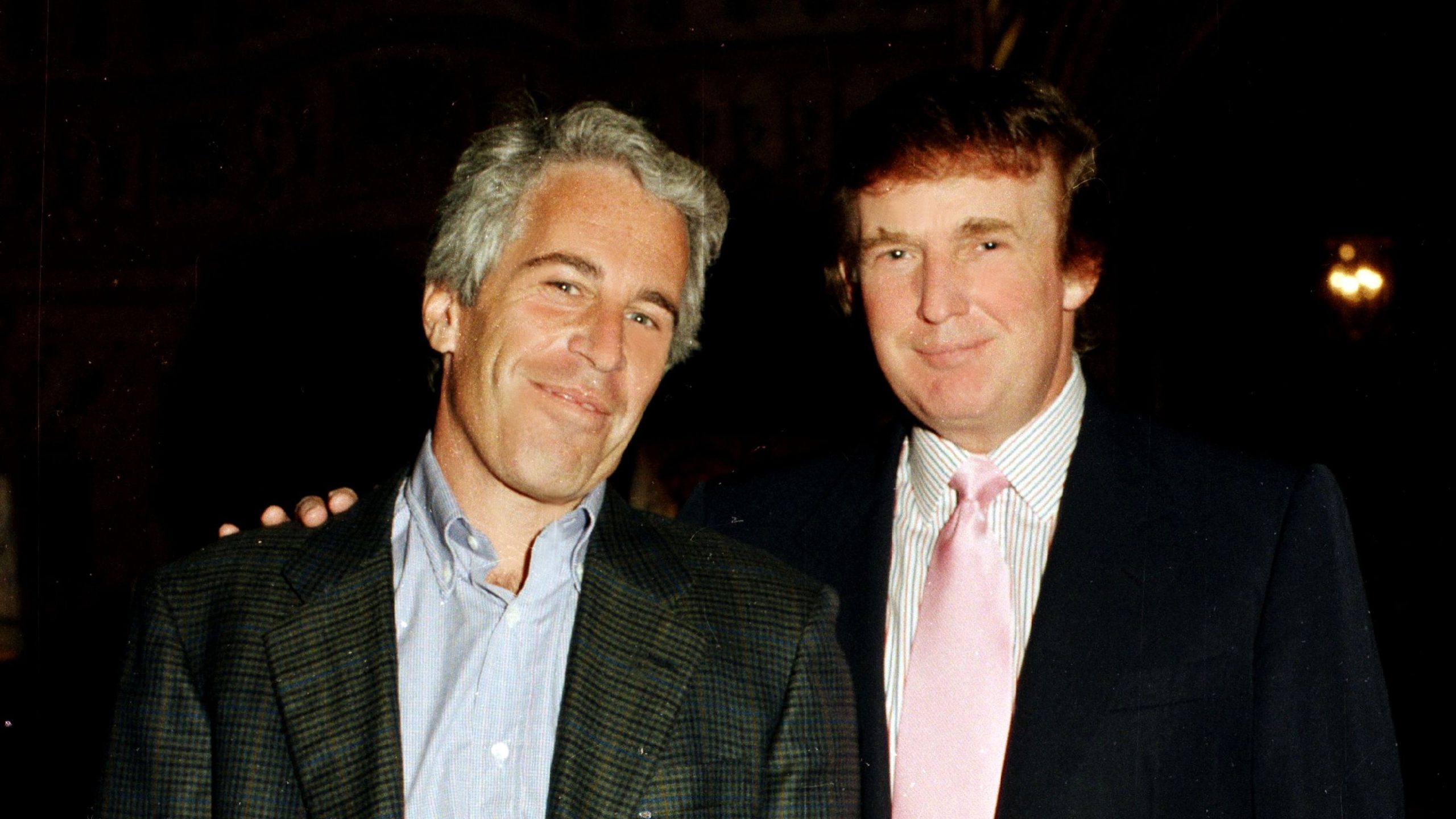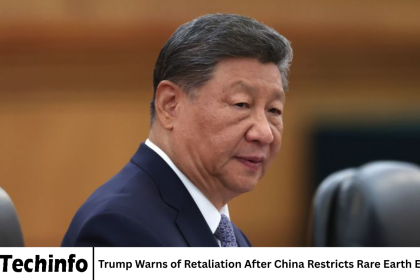The growing trade tension between the United States and the European Union has reached a new stage, as several European postal services have announced the suspension of package shipments to the US. This move, sparked by escalating tariff disputes, is causing widespread disruption for individuals and businesses that rely on cross-Atlantic trade and e-commerce.
The decision reflects a deeper struggle over trade policies, economic protectionism, and the future of transatlantic relations. While both sides express a willingness to resolve differences, the standoff is already affecting supply chains, small exporters, and online sellers across Europe and America.
This article examines the reasons behind the suspension, the economic and political implications, and what it could mean for global trade moving forward.
The Roots of the Tariff Dispute
The latest round of trade tensions between the US and the EU stems from disagreements over tariffs on goods such as steel, aluminum, agricultural products, and luxury items. Both sides have accused each other of unfair trade practices, leading to tit-for-tat measures.
The US government recently introduced new tariffs on certain European imports, citing the need to protect domestic industries. In response, European officials criticized the move as protectionist and harmful to global trade stability.
While such disputes are not new, this time the impact has extended beyond major industries to the everyday consumer. Postal and courier services, which play a crucial role in e-commerce and personal shipping, have become caught in the crossfire.
Why Postal Services Suspended Shipments
Several major postal networks across Europe, including those in Germany, France, and the Netherlands, have temporarily halted parcel shipments to the United States. The decision was influenced by increased customs inspections, rising export costs, and uncertainty over new tariff categories.
Postal operators have stated that the situation has made it “logistically and financially unsustainable” to continue normal services. Packages have faced long delays at customs checkpoints, with additional fees imposed on items previously exempt from tariffs.
For smaller businesses and individual senders, these new complexities have made shipping to the US nearly impossible. Many are now seeking alternative routes or private courier options, though these are significantly more expensive.
The Impact on E-Commerce and Businesses
The suspension of transatlantic shipping services is a major setback for the booming e-commerce sector. European sellers who rely on platforms such as eBay, Etsy, and Amazon to reach American customers now face delivery suspensions, order cancellations, and lost revenue.
Small businesses in particular are feeling the strain. Many of them depend on affordable postal services for international sales, and private logistics alternatives can double or even triple shipping costs.
For US consumers, the result is fewer European products available online, longer delivery times, and higher prices. This disruption may also affect major retailers that source goods from European suppliers, from fashion brands to specialty food companies.
Political Reactions from Both Sides
European leaders have criticized the US tariffs as “unnecessary and counterproductive,” urging Washington to return to negotiations. The European Commission has called for a temporary rollback of trade barriers and for postal cooperation to resume.
In the United States, officials have defended the tariffs as part of a broader effort to level the playing field and reduce the trade deficit. They argue that some European industries benefit from unfair subsidies that disadvantage American manufacturers.
The tension reflects deeper political challenges between the two sides. Despite being long-standing allies, the US and EU have repeatedly clashed over issues such as digital taxes, environmental regulations, and agricultural standards.
The Role of Customs and Logistics
The dispute has placed customs agencies under enormous pressure. The new tariffs have complicated classification systems for goods, leading to confusion about which items are subject to higher duties.
Packages that once passed smoothly through customs now face long delays and additional documentation requirements. Postal operators must manage the growing backlog while explaining new rules to frustrated customers.
Some logistics experts believe that the current suspension is only temporary and that postal services will resume shipments once governments clarify tariff categories. However, others warn that the disruptions may persist if trade talks fail to produce results soon.
Consumer Frustration and Uncertainty
Consumers on both sides of the Atlantic are expressing frustration over the sudden suspension. Many who ordered products from European stores have seen their shipments canceled or delayed indefinitely.
For people who send personal parcels—such as gifts, documents, or cultural items—the situation has become equally difficult. What used to be a simple and affordable service is now entangled in bureaucratic and financial barriers.
Social media platforms are filled with complaints from customers waiting weeks for updates or refunds. The lack of clarity about when postal shipments will resume has added to the uncertainty.
The Broader Economic Context
The trade dispute comes at a sensitive time for the global economy. Both the US and the EU are working to stabilize post-pandemic recovery and control inflation. Trade barriers only add to cost pressures and weaken consumer confidence.
The International Monetary Fund (IMF) and World Trade Organization (WTO) have repeatedly warned that escalating tariff conflicts could slow global growth. Disruptions in postal and logistics networks are particularly damaging because they affect small businesses and individual consumers—the backbone of the modern digital economy.
As tariffs and trade barriers rise, economists predict a decline in transatlantic exports, increased inflationary pressure, and reduced competitiveness for global industries.
Alternatives and Workarounds
In response to the suspension, many businesses are turning to private courier services such as DHL, FedEx, and UPS to deliver goods to the United States. These companies are still operating, though at higher costs due to additional customs and tariff charges.
Some European sellers have also begun partnering with US-based fulfillment centers, shipping bulk orders in advance to warehouses located within America. Once in the US, domestic delivery remains unaffected by tariffs.
While these alternatives help maintain limited trade flow, they are not accessible to all. Smaller merchants, particularly artisans and local producers, often lack the resources to adapt quickly to these changes.
Possible Diplomatic Solutions
Diplomatic discussions are already underway to address the postal disruption. European trade officials have requested urgent talks with US representatives to clarify tariff categories and find ways to resume shipping services.
Both sides have a strong interest in resolving the dispute. The United States depends on European exports such as machinery, luxury goods, and automotive parts, while Europe relies heavily on access to American markets.
Analysts believe that temporary exemptions or adjustments to customs rules could help restore postal services while broader trade negotiations continue. A mutual tariff rollback or digital customs framework might also be part of a long-term solution.
The Role of Technology in Trade Management
Technology is playing an increasing role in managing modern trade disputes. Customs digitalization, blockchain tracking, and artificial intelligence tools are being tested to streamline inspections and document verification.
If implemented widely, these technologies could reduce delays and improve transparency, helping postal and shipping companies manage tariffs more efficiently. However, political will and international cooperation remain essential to make such systems effective.
Lessons from Past Trade Conflicts
This is not the first time that tariffs have disrupted global postal and shipping systems. Previous disputes—such as the US-China trade war and earlier EU-US disagreements—also caused temporary suspensions and rerouting of goods.
One key lesson is that trade disputes rarely stay confined to specific sectors. Even targeted tariffs can have broad ripple effects, influencing logistics, consumer markets, and diplomatic relations.
Experts suggest that governments must coordinate better to prevent everyday consumers and small businesses from becoming collateral damage in trade negotiations.
The Human and Cultural Dimension
Beyond economics, the suspension of transatlantic mail and packages carries symbolic weight. For generations, postal services have connected families, students, and businesses across continents.
This interruption highlights how fragile those connections can be in the face of geopolitical tensions. It also raises concerns about the growing separation between traditional allies who once prided themselves on free trade and cooperation.
Cultural exchange, tourism, and education—all dependent on open trade and communication—may also feel the impact if restrictions persist.
The Future of Transatlantic Trade Relations
The suspension of postal shipments is just one sign of a deeper shift in global trade dynamics. The relationship between the United States and Europe is being redefined amid changing priorities and economic challenges.
While both sides share democratic values and a commitment to open markets, they increasingly differ on issues such as subsidies, carbon tariffs, and digital regulation. These disagreements risk creating long-term fractures in what was once the world’s strongest economic partnership.
Still, experts remain hopeful that practical compromise will prevail. Both economies are too interconnected to sustain prolonged disruption without serious harm. The challenge will be balancing national interests with the shared need for global stability.
Frequently Asked Questions
Why did European postal services stop shipping to the US?
They suspended shipments due to rising tariffs, customs delays, and increased export costs caused by the ongoing trade dispute with the United States.
How long will the suspension last?
The duration depends on trade negotiations between the US and EU. Some postal operators expect services to resume once customs classifications and tariffs are clarified.
Are all shipments affected by the suspension?
Yes, most regular parcel shipments from European postal networks to the US are affected, though private courier services are still operating.
What can businesses do to continue shipping to the US?
Businesses can use private couriers, partner with US-based warehouses, or wait for postal services to resume once diplomatic talks yield progress.
How does this impact consumers in the US?
US consumers may experience delays, canceled orders, and higher prices for European goods ordered online.
What role do tariffs play in this issue?
Tariffs increase the cost of importing goods and complicate customs procedures, leading to shipment delays and higher delivery costs.
Could this dispute lead to a larger trade conflict?
If unresolved, the suspension could escalate tensions and affect broader trade relations between the US and the EU, potentially leading to further economic disruption worldwide.
Conclusion
The decision by European postal services to halt shipments to the United States marks a serious escalation in the ongoing tariff dispute between the two economic powers. What began as a disagreement over trade policy has quickly evolved into a situation affecting everyday people and businesses on both sides of the Atlantic.
Ultimately, restoring trust and cooperation will be key. Whether through diplomatic negotiation, technological innovation, or policy reform, both the United States and Europe must find a way to reopen the flow of goods, communication, and goodwill that has long defined their partnership.










